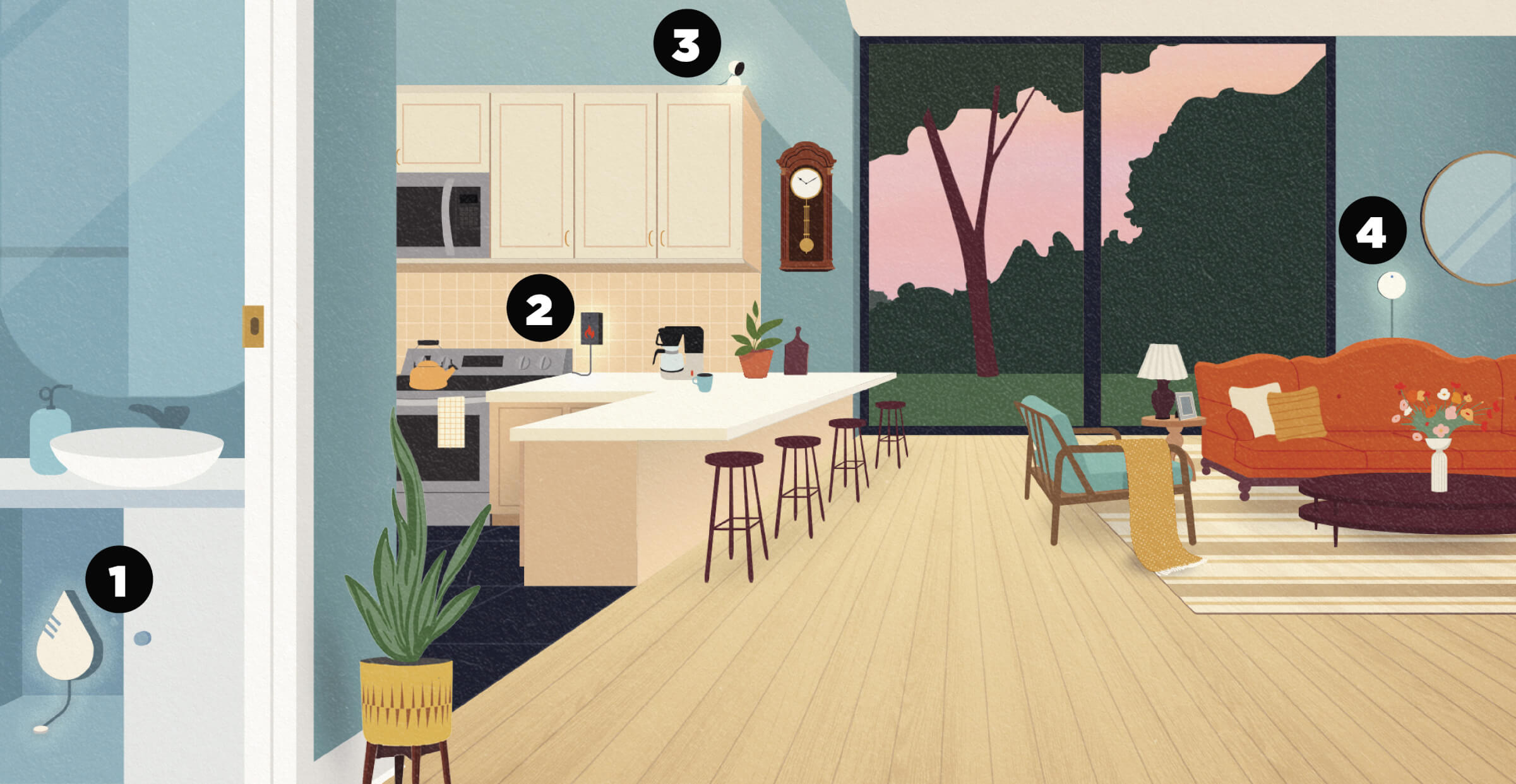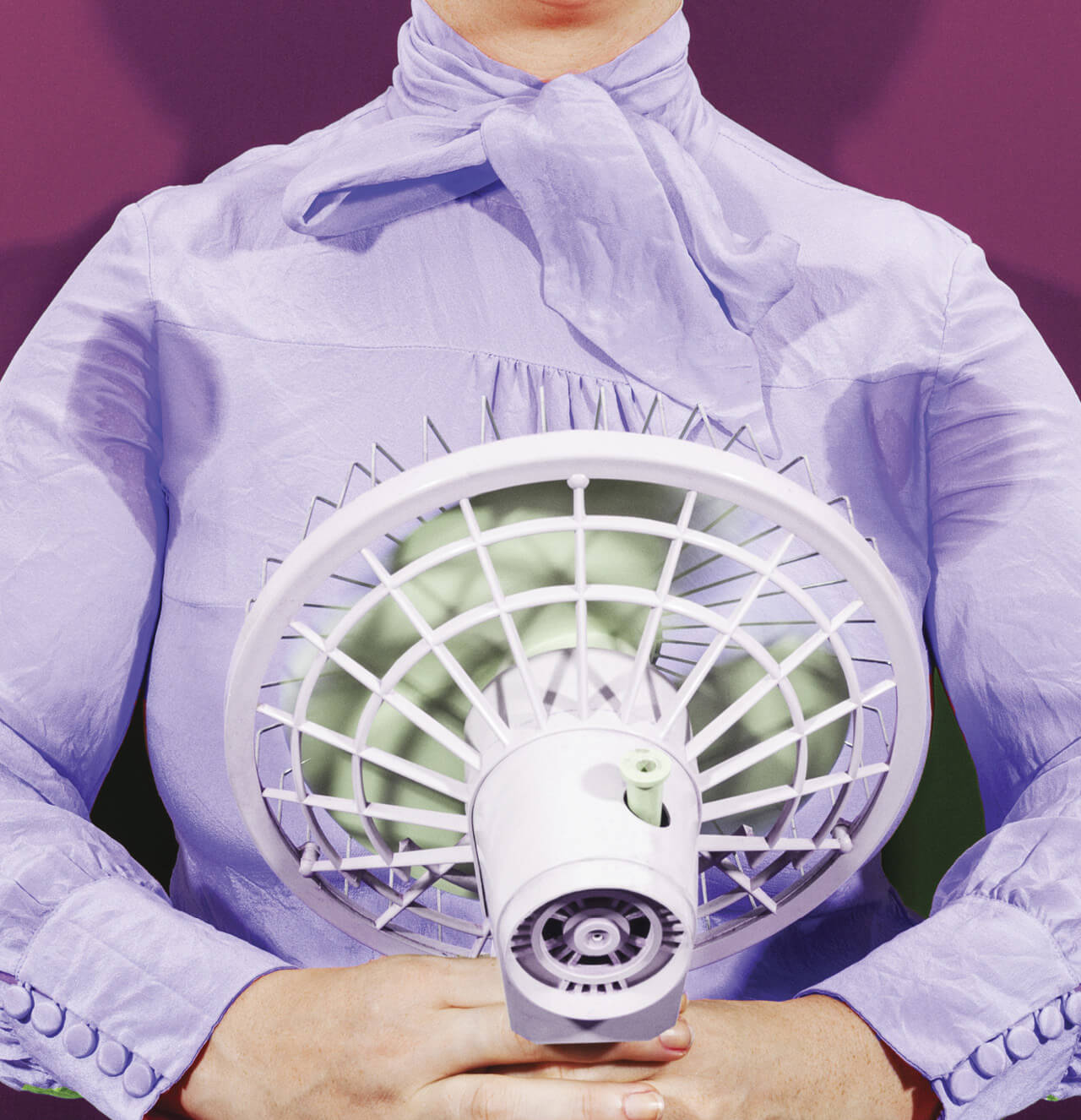THIS IS 50
Keeping Your Parent Safe at Home

IF YOU’RE WORRIED about a vulnerable parent living solo—and they’re annoyed that you’re worried—technology could help. These devices monitor a household and alert caregivers to problems. Assuming your parent agrees to a little friendly supervision, here are some ways to ensure they’re OK.
1. HYDRATION HELP
Your parent needs water to stay hydrated and clean, so an unexplained drop in use can indicate a problem. A usage tracker, which also detects higher-than-normal usage, will notify you when there are potential issues.
Consider: FloLogic, Phyn Smart Water Assistant, Grohe Sense Water Guard
2. KITCHEN CAUTION
Stoves left unattended represent the leading cause of cooking fires. Kitchen-safety devices work by either shutting off the stove entirely or reducing its maximum temperature.
Consider: IGuardStove, FireAvert, SmartBurner (electric stoves only), SmartMicro (microwaves)
3. A WATCHFUL CAM (OR TWO)
Internet-connected security cameras let you see what’s going on—with both day and night vision—and you can even talk through the device. Place cameras in rooms you want to monitor, then access them through an app.
Consider: Ring Indoor Cam, Wyze, Google Nest Cam
4. FALL MONITORS
Falls are the leading cause of injury for people over 65, and those who live alone are particularly vulnerable. Fall detectors can be wearable or wall- or ceiling-mounted; most require a subscription.
Consider: InvisaWear, Teq-FallsAlert, Vayyar Care (works with Amazon’s Alexa devices) —Julie Halpert

A New Way to Perimenopause
Entrepreneurial Generation X women are demystifying one of midlife’s biggest challenges
AT A MARCH TAPING of her daytime talk show, Drew Barrymore, 48, peeled off her jacket and breathlessly declared, “I think I’m having my first perimenopause hot flash!” She’s only one of the prominent Gen X women who have spoken publicly about hormonal changes at midlife.
Some have even spotted a business opportunity. Barrymore, Cameron Diaz, 51, and Gwyneth Paltrow, 51, are backers of Evernow, a telemedicine company focused on menopausal care. Actress Judy Greer, 48, is a founding partner of Wile, which sells supplements to tame hot flashes and hormonal shifts. Former Marie Claire editor Anne Fulenwider, 51, created Alloy, a telehealth network of menopause-trained clinicians. And actress Naomi Watts, 55, helped create Stripes, a line of products for symptoms including hair loss and sexual discomfort. —Laura Sampedro